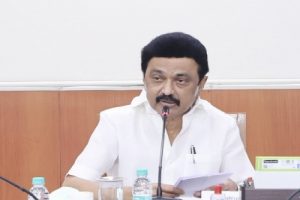The unseemly squabbling over the national capital’s drinking water standards has its origin in a survey by the Bureau of Indian Standards that said tap water in Delhi is the most unsafe among 21 state capitals; and its rationale in the Delhi Assembly elections slated for early next year. Delhi featured at the bottom of the list as all tested samples failed to meet the BIS quality parameters, the survey report released by Union Consumer Affairs Minister Ram Vilas Paswan said.
The next day posters sprung up all over the Capital saying the Aam Aadmi Party government was “poisoning” its residents with toxic water. Delhi MPs Harsh Vardhan and Manoj Tiwari of the BJP also weighed in on the issue leading to an angry rebuttal by Delhi Chief Minister Arvind Kejriwal who termed the survey false and politically motivated.
Advertisement
Water has now been added to the list of poll issues that the BJP and AAP are crossing swords on, the others being pollution and unauthorised colonies. In the war of words between Kejriwal and Paswan, charges and counter-charges are being flung around, including the allegation that a Lok Janshakti Party worker collected water samples for the survey and a demand for the Union minister’s resignation.
Whatever the merit of these claims, the timing of the survey is certainly questionable. What is more jarring is that an issue of such immense public interest has been reduced to a political slugfest. The basic rights of Delhi’s citizens are being trifled with as political rivals battle it out. Nobody in the Capital is any wiser on the quality of drinking water in the city as governments in the Centre and state come out with contradictory statistics.
The BIS survey pointed to the abysmal quality of tap water in Kolkata and Chennai too, but it has not turned into a raging controversy there like it has in Delhi. No doubt the issue has come in handy for AAP’s rivals who have an uphill task dethroning the party from the seat of power in Delhi given its sterling record on education and health care. Delhi’s ruling party’s propensity for sops such as free water and electricity for those who consume the basic minimum and free bus travel for women will also stand it in good stead come election season.
Regularisation of unauthorised colonies is no doubt a decision taken by the Central government but the Kejriwal government has cleverly framed the narrative to suggest that it was the AAP’s pressure that forced the Modi government to act in that direction.
Water, on the other hand, is a credible poll issue that will resonate with the nearly two crore population of Delhi. It has overtaken pollution as an electoral gambit for purely pragmatic reasons as the latter may not be a subject that can be sustained till early next year when the Assembly election is likely to be held.











